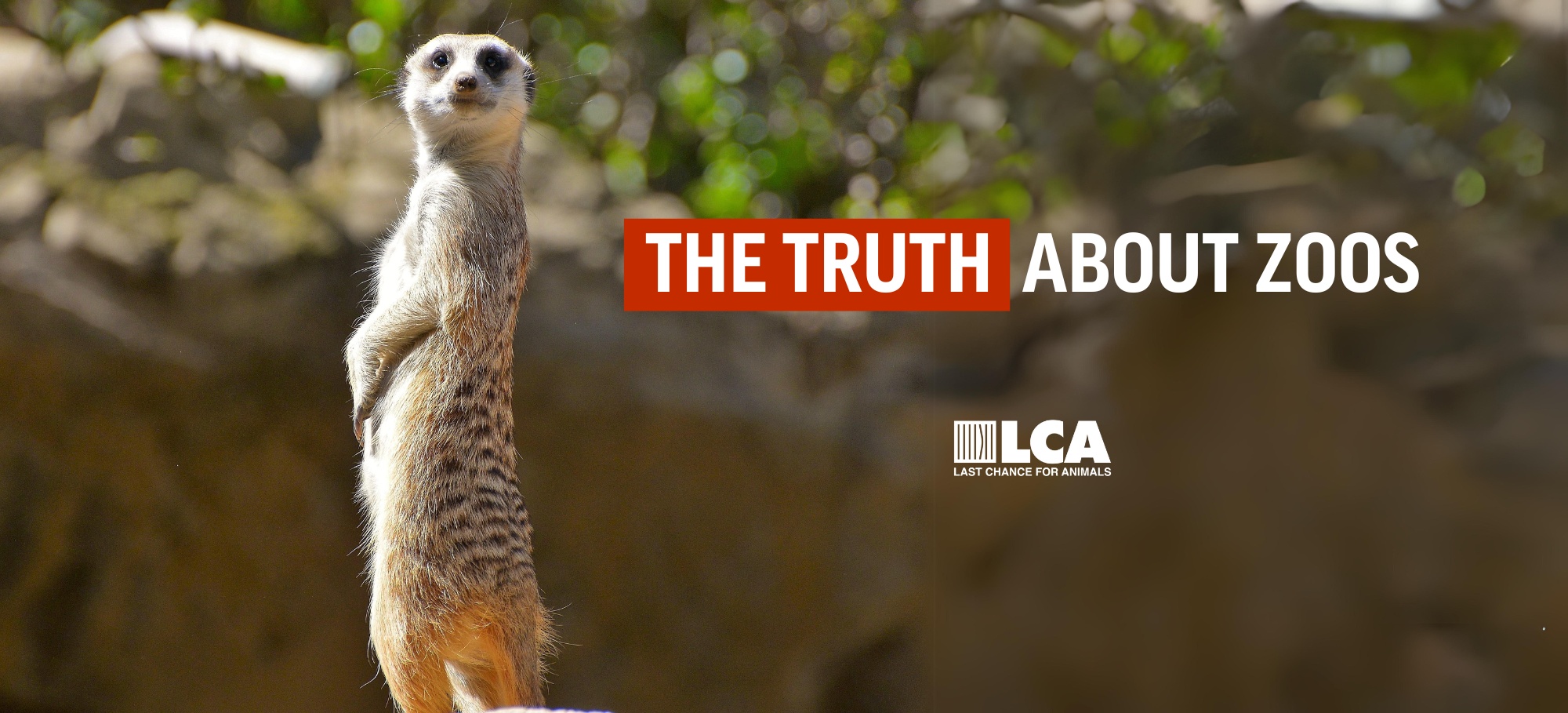THE TRUTH ABOUT ZOOS
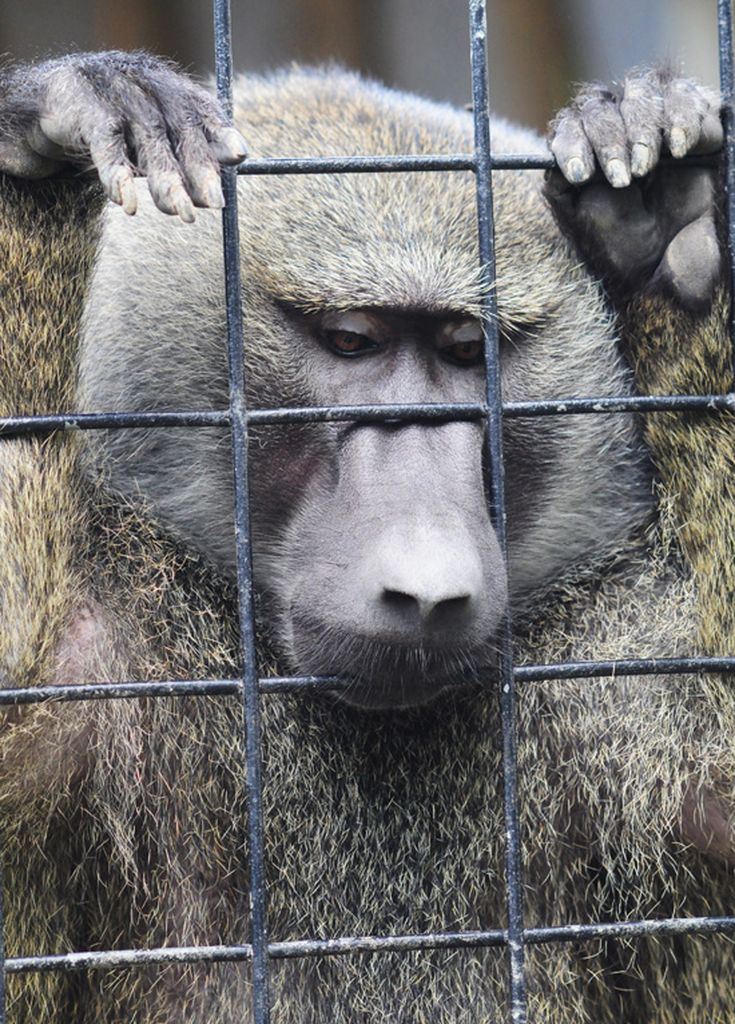 Animals in zoos are forced to live in artificial, stressful, and downright boring conditions. Removed from their natural habitats and social structures, they are confined to small, restrictive environments that deprive them of mental and physical stimulation. While zoos claim to provide conservation, education, and entertainment, their primary goal is to sustain public support in order to increase profits.
Animals in zoos are forced to live in artificial, stressful, and downright boring conditions. Removed from their natural habitats and social structures, they are confined to small, restrictive environments that deprive them of mental and physical stimulation. While zoos claim to provide conservation, education, and entertainment, their primary goal is to sustain public support in order to increase profits.
CONSERVATION
Zoos profess to practice conservation -- in other words, the preservation of various species -- claiming that without their efforts, certain species would become extinct. However, if they were truly concerned with the preservation of species, they would instead work to preserve animals’ natural habitat. For it is, in fact, humans who are eroding the natural habitat of numerous species through pollution, rangeland degradation, topsoil erosion, crop and groundwater contamination, and other harmful processes.
Moreover, while zoos generally claim to take in only the neediest of animals, most of the animals in zoos are not endangered, orphaned, or injured at all. A great many are captured from the wild. Those that are inbreeding programs seemed destined for a life in captivity, for they are accustomed to an artificial environment where food, shelter, and protection from predators are provided for them. Natural conditions such as climate, habitat, and feeding cannot be properly recreated, and zoos lack sufficient space to reproduce a natural 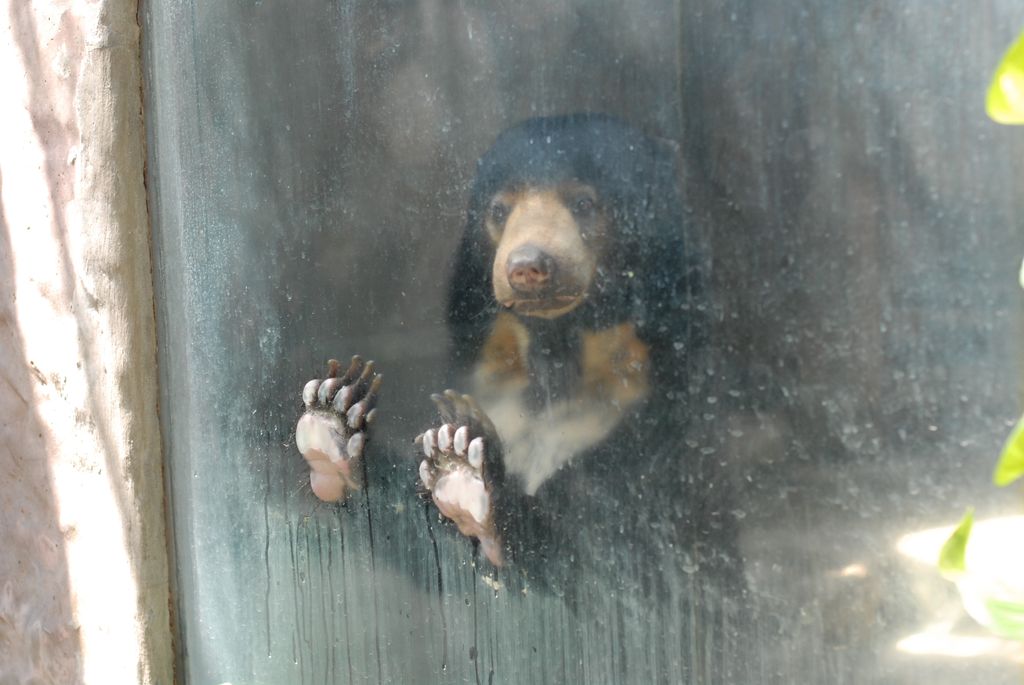 environment, provide a normal social equilibrium of the species, or maintain a healthy gene pool ordered by natural selection. Zoos thus compromise captive animals’ chances of successful introduction into the wild. Additionally, there may be no wilderness left for zoo-bred animals, as humans are destroying their natural habitat at such an alarming rate. Realistically, the only way to stop extinction is to preserve the world’s habitat and ecosystems.
environment, provide a normal social equilibrium of the species, or maintain a healthy gene pool ordered by natural selection. Zoos thus compromise captive animals’ chances of successful introduction into the wild. Additionally, there may be no wilderness left for zoo-bred animals, as humans are destroying their natural habitat at such an alarming rate. Realistically, the only way to stop extinction is to preserve the world’s habitat and ecosystems.
EDUCATION
While a number of zoos make an effort to provide some sort of education, they mostly teach people how animals react in captive situations. Patrons are unable to witness how multifaceted the lives of animals truly are. Instead, zoo-goers observe animals’ reactions to boredom, depression, and stress.
Even if there were an abundance of signs, descriptions, and educational displays beside the animals’ cages, very little of this information, if any, will be remembered. Facilities that teach most effectively do so by presenting videos, wildlife documentaries, slides, interactive modules, graphic displays, and computer simulations. All of the aforementioned present animals in their natural environments, which allows individuals to truly understand the way they hunt, feed, raise their young, breed,
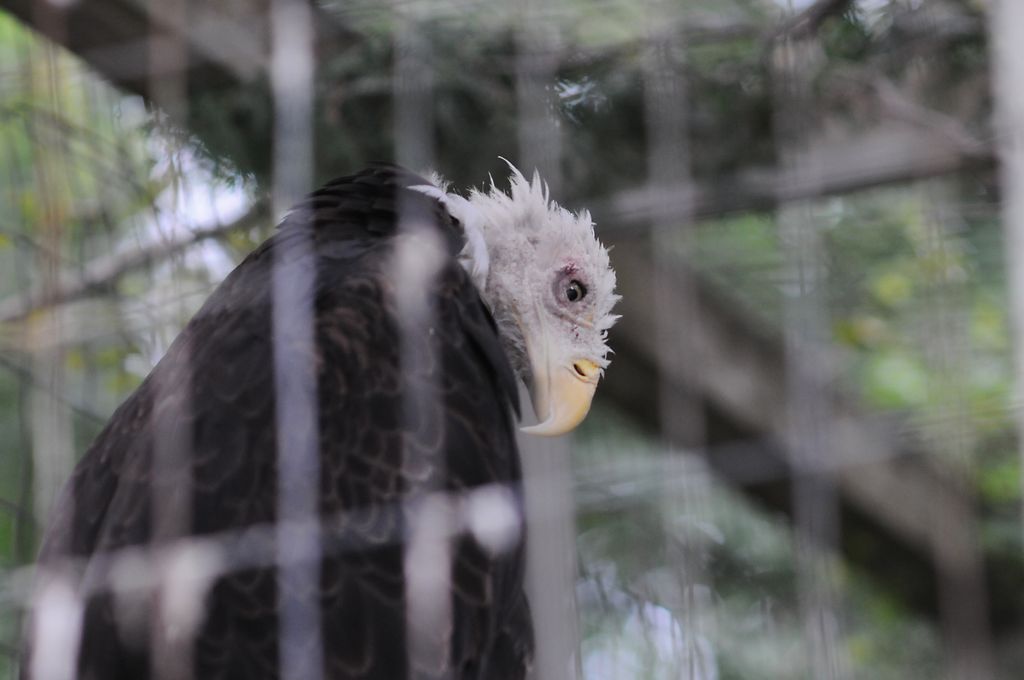 respond to and display affection, fear, pain, hunger, instinct and ultimately how they behave and survive naturally. Simply showing animals in extremely restrictive spaces misinforms patrons by misrepresenting what those animals’ lives naturally consist of.
respond to and display affection, fear, pain, hunger, instinct and ultimately how they behave and survive naturally. Simply showing animals in extremely restrictive spaces misinforms patrons by misrepresenting what those animals’ lives naturally consist of.
Finally, zoos teach children and other patrons that it is acceptable to confine other beings, no matter how sentient and intelligent they may be. Such a lesson learned in spite of the best interests of those animals teaches disrespect for life.
RESEARCH
There are simply very few zoos that practice relevant and reliable research. Those that do mainly examine the physiological structure of a captive animal, as well as the illnesses he or she has acquired. These results, however, are obviously skewed towards animals living in captivity. They, therefore, generate little information about how to best conserve species in the wild.
In their natural habitat, species develop immunities to naturally occurring illnesses. Zoo animals usually do not form resistance to the most ordinary of ailments and are more prone to catching viruses that they would never encounter in the wild. Moreover, living in captivity causes animals to lose their natural disposition to the extent that they become unrepresentative of their species. Therefore, studies of captive animals are of limited benefit to animals in the wild.
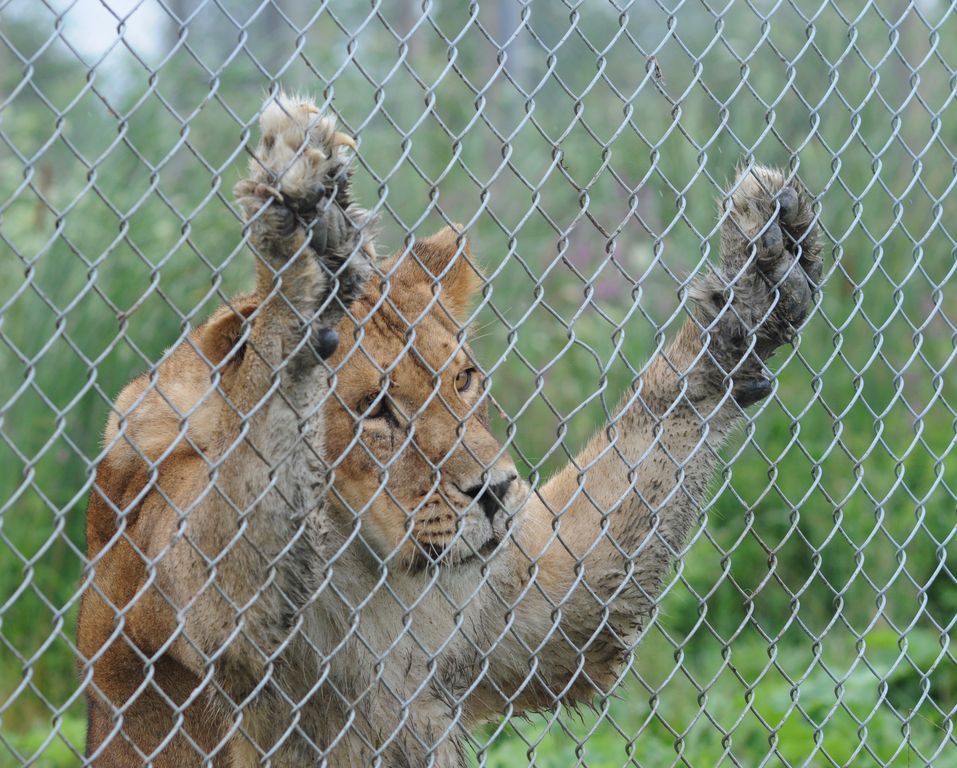
ZOOCHOSIS
Many animals held in captivity begin to form abnormal symptoms referred to as “zoochosis”. These neurotic and atypical behaviors occur as a result of boredom, depression, frustration, a lack of mental and physical enrichment, and removal from their natural habitat and social structures. Signs of zoochosis include:
bar biting, coprophagia (consuming and playing with excrement), self-mutilation, circling, rocking, swaying, pacing, rolling, twisting, nodding of the neck or head, vomiting, frequent licking, and excessive grooming.
AFTER THE ZOO
Zoos seek out baby animals, knowing that they are most appealing to the public. When they grow older, and therefore less attractive to patrons, they will often be sold or killed. Animals who breed frequently, such as deer, tigers, and lions, are sometimes sold to game farms and ranches where hunters pay to kill them. Other “surplus” animals are sometimes sold to roadside zoos (which are typically very poorly run), private individuals, animal dealers, or to laboratories for experimentation purposes.
ANIMAL SANCTUARIES
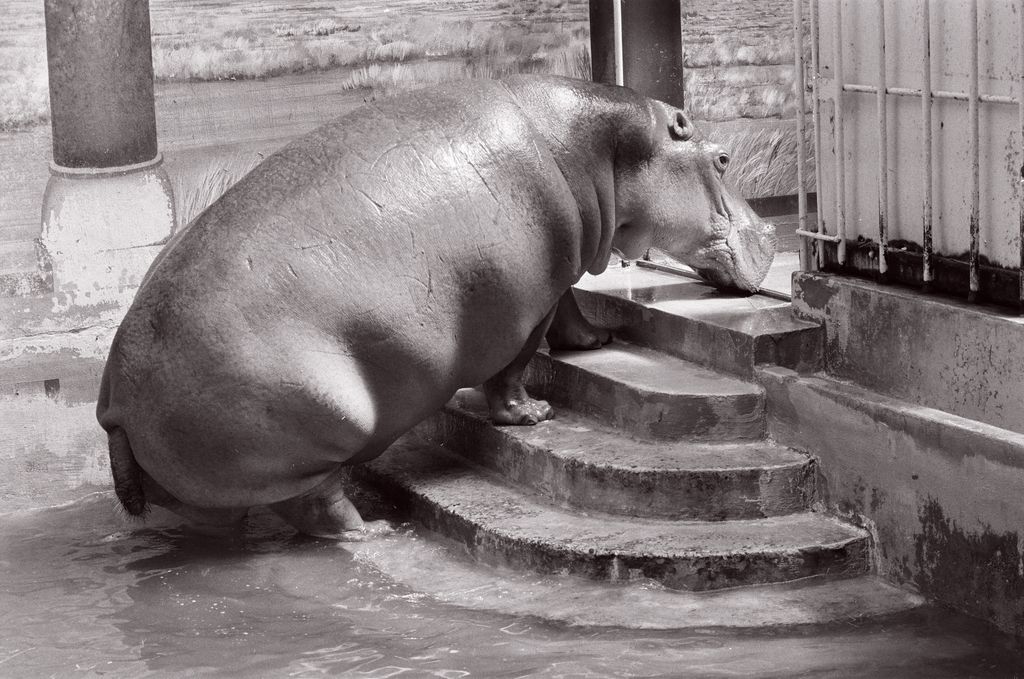
Unlike zoos, animal sanctuaries are non-profit rescue centers that provide shelter for abused, unwanted, neglected, and orphaned animals. They advocate spaying and neutering and attempt to find suitable homes for animals. Also, many attempt to teach others about compassionate living and most care for animals until the latter die of old age.
Zoos, on the other hand, sometimes sell aging animals. Moreover, whereas sanctuaries generally house animals in need of care with other members of their species, zoos frequently remove animals from the wild and force them into a life of captivity, one that all too often involves isolation from other members of their species. Some are abused or neglected; most are kept in a prison-like environment. Unlike animal sanctuaries, the zoo’s focus is not on what’s best for the animals.
HOW YOU CAN HELP
-
Stay involved by signing up for LCA's email action alerts.
-
Protest a zoo near you. Reach out to LCA if you need posters and/or brochures. Email us at This email address is being protected from spambots. You need JavaScript enabled to view it..
-
Avoid businesses, at home and on vacation, that exploit wild animals – this includes all elephant rides.

